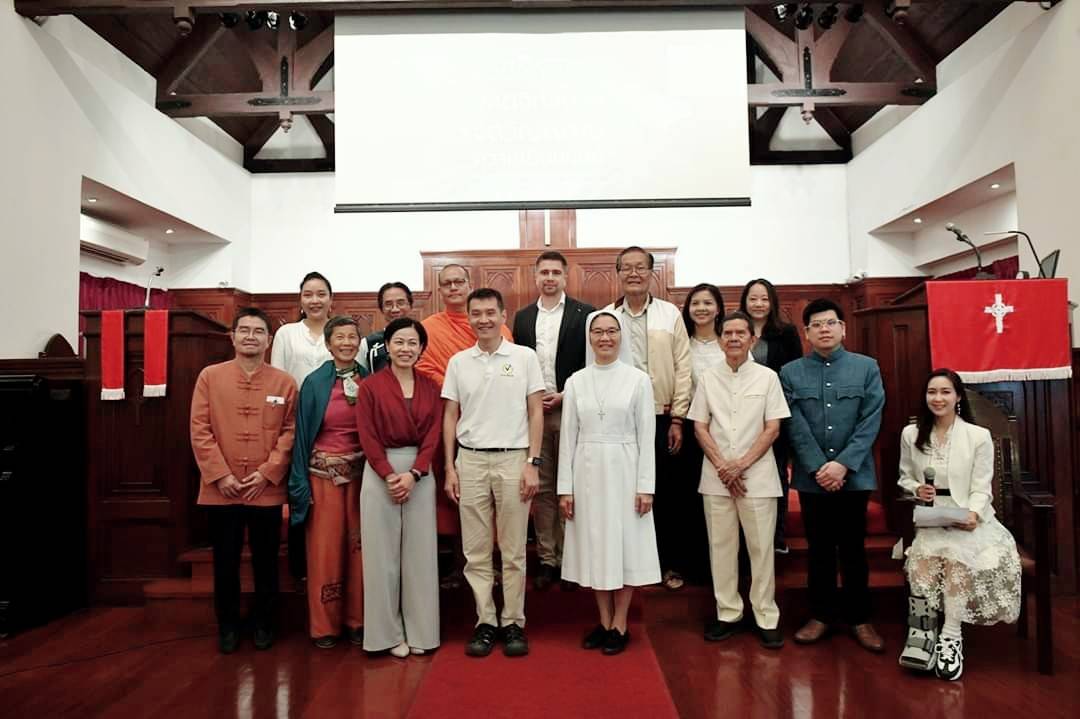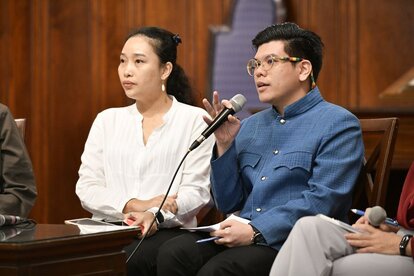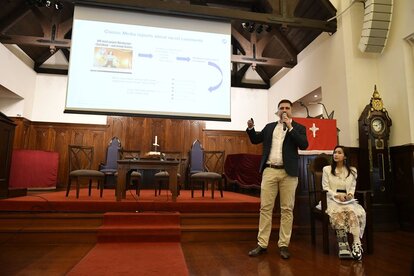Fact-checking and critical mind keys to constructive digital dialogue

A panel discussion including academics and activists urged the public to consume information online with a critical mind while making positive content sharable in fight against “disinformation and hate speech” that are rampant on social media and internet.
Speaking at the 6th Digital Thinkers Forum on the topic of “Enhancing Humanity in Digital World: Handling misinformation, hate speeches and cyber-mobbing” held at Sueb Sampanthawong Church in Bangkok, Suchart Setthamalinee, Head of Department of Peace Studies at Payap University said regardless of religion and race, humanity in online dialogue is possible if internet users communicate with each other with open-mindedness.
“If fake news and hate speech can be widespread on social media, we can make humanity ideas more impactful with digital tools against waves of negative statements and false news as well,” said Mr. Suchart
His opinions were echoed by Pracha Hutanuwatra from Sikkha Asia Foundation, saying contents promoting humanity can be produced and sharable to persuade people to engage online discussion in a more peaceful way.
While Phra Napan Santibhaddo Thawornnbanjob, assistant abbot at Wat Sraket, said conflicts have happened since ancient times and even Buddha himself encountered hate comments from time to time, but conflicts get out of hand easily today because the digital tools amplify the negative and false messages.
“Collective mindfulness and wisdom are mechanisms leading to less hate-based statements,” Phra Napan said.
This is not the problem that can be solved as individual, he added.
While sticking to core values of religious belief to bring constructive digital dialogue, Sorrayut Rattanapojanaj, co-founder of Jitr Arsar (spirit of volunteering) Bank, however, emphasized that atheists should not feel eliminated.
“We cannot fix the problems with the same mindset because the number of atheists is on the rise, especially on the internet and social media platforms.”
Without religious belief, Mr. Sorrayut said constructive dialogue online is still achievable. “Humanity comes before religion.”
Essential skills to live in an age of information warfare, according to Wasin Punthong, lecturer at Thammasat University’s Faculty of Political Science, include critical thinking, deep listening, farsightedness and open-mindedness.
“Filtering out false information is hard. I think mainstream media are doing their best to screen false news but perhaps due to some constraints such as government interference, they cannot carry out their work to the best of their ability,” Fareeda Jeh-oh, lecturer in communication arts at the Walailak University told the panel discussion.
What is more worrying, she said, is that people easily believe in what they see or read without rechecking whether it is factual before sharing on social media.

Frederic Spohr, Head of Thailand and Myanmar at Friedrich Naumann Foundation for Freedom pointed out that when any social media post leads to the heated debates, removal of the post is not the way out.
“Deletion is not a recommended solution as it could increase distrust and close door for an open discussion,” Mr. Spohr said, adding that the internet is a mirror of the society that uses it.

The forum was co-hosted on 15 November 2019 by the Thai Health Promotion Foundation, Centre for Humanitarian Dialogue and ChangeFusion Institute and Friedrich Naumann Foundation for Freedom.